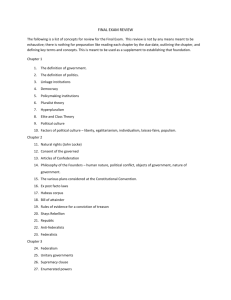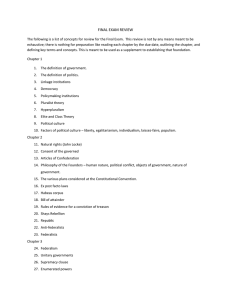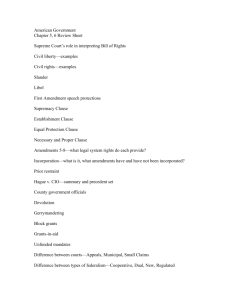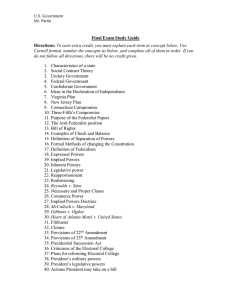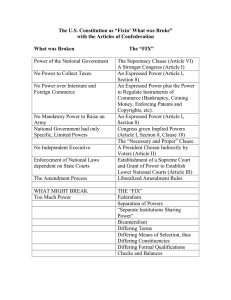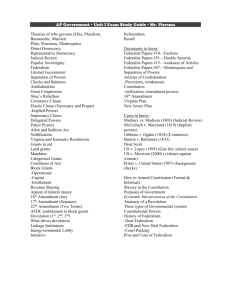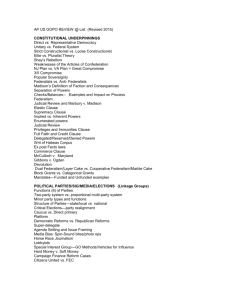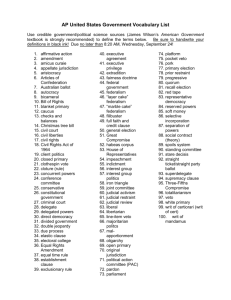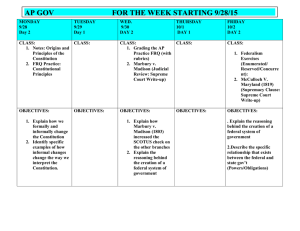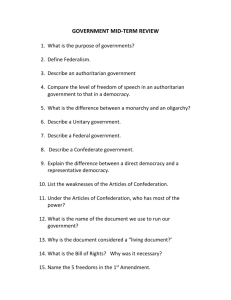APGAP Final Practice FRQ 1 Key
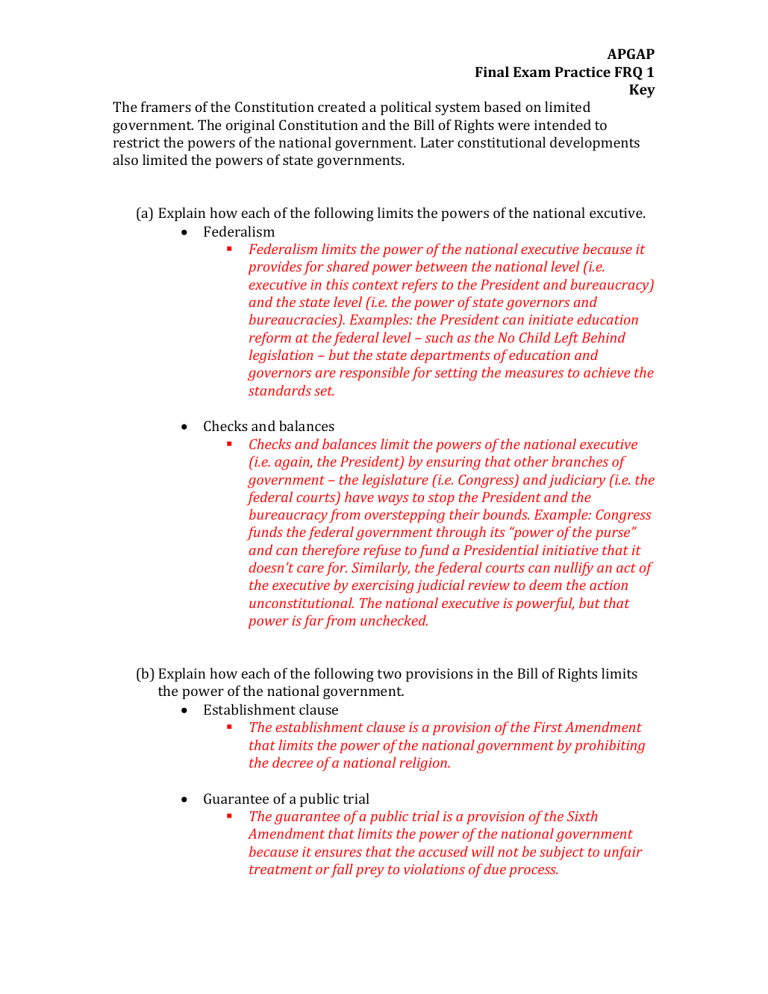
APGAP
Final Exam Practice FRQ 1
Key
The framers of the Constitution created a political system based on limited government. The original Constitution and the Bill of Rights were intended to restrict the powers of the national government. Later constitutional developments also limited the powers of state governments.
(a) Explain how each of the following limits the powers of the national excutive.
Federalism
Federalism limits the power of the national executive because it provides for shared power between the national level (i.e. executive in this context refers to the President and bureaucracy) and the state level (i.e. the power of state governors and bureaucracies). Examples: the President can initiate education reform at the federal level – such as the No Child Left Behind legislation – but the state departments of education and governors are responsible for setting the measures to achieve the standards set.
Checks and balances
Checks and balances limit the powers of the national executive
(i.e. again, the President) by ensuring that other branches of government – the legislature (i.e. Congress) and judiciary (i.e. the federal courts) have ways to stop the President and the bureaucracy from overstepping their bounds. Example: Congress funds the federal government through its “power of the purse” and can therefore refuse to fund a Presidential initiative that it doesn’t care for. Similarly, the federal courts can nullify an act of the executive by exercising judicial review to deem the action unconstitutional. The national executive is powerful, but that power is far from unchecked.
(b) Explain how each of the following two provisions in the Bill of Rights limits the power of the national government.
Establishment clause
The establishment clause is a provision of the First Amendment that limits the power of the national government by prohibiting the decree of a national religion.
Guarantee of a public trial
The guarantee of a public trial is a provision of the Sixth
Amendment that limits the power of the national government because it ensures that the accused will not be subject to unfair treatment or fall prey to violations of due process.
APGAP
Final Exam Practice FRQ 1
Key
(c) Choose one of the following and explain how it limits the power of state governments.
Citizenship clause of the Fourteenth Amendment
The Citizenship clause limits the power of state governments by providing a standard definition of citizenship that all states must honor. States are not permitted to define citizenship on their own terms.
Selective incorporation
Selective incorporation limits the power of state governments because it prohibits state governments from denying citizens of the protections enshrined in the Bill of Rights.

